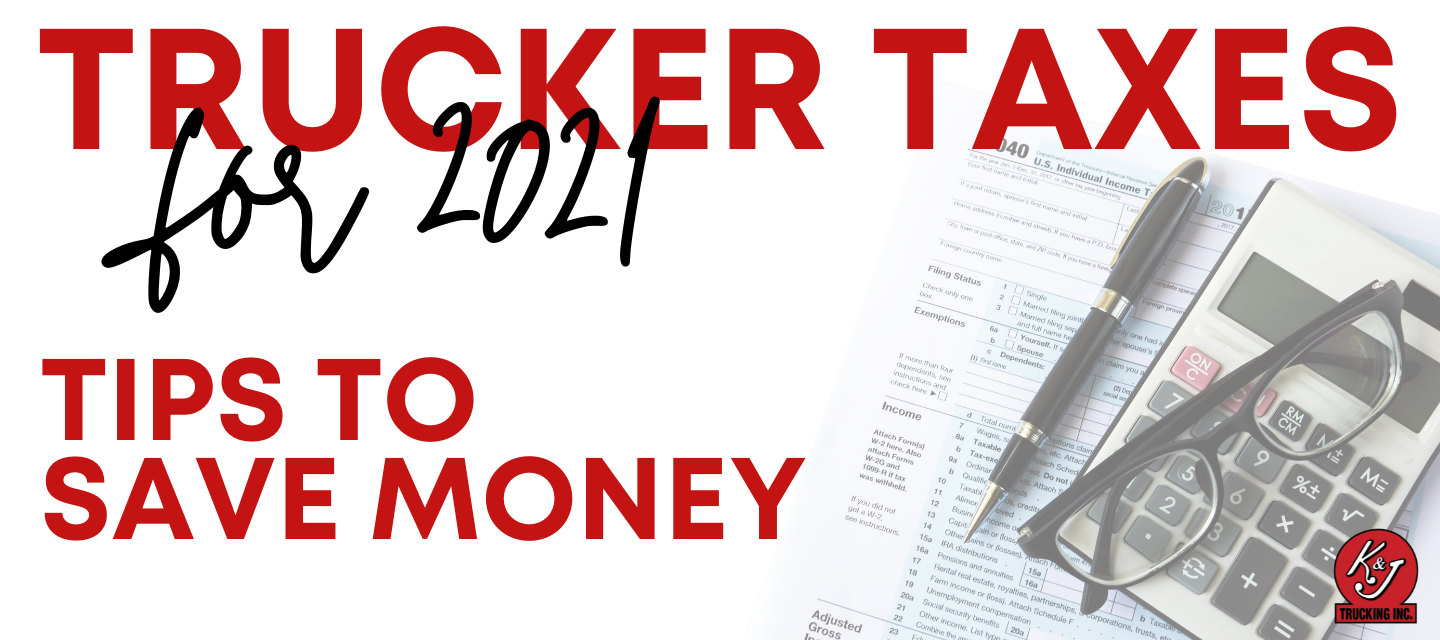Trucker Taxes for 2021: Tips to Save Money

It’s hard to believe that it’s almost 2022. You're probably busy on the road trying to get some last minute miles, not thinking about your tax bill. But before we close the doors on 2021, there’s one last order of business to cross off your to-do list: trimming your personal tax bill.
I recently spoke with Pattie Berkner, a Financial Advisor at Legacy Financial Partners, and she shared some last minute tips to help keep tax liabilities down.
“Waiting until you begin to work on your tax return in early 2022 will be too late to save in most cases. So, if you’re interested in potentially saving on taxes, you should plan now,” she says.
To Itemize or Not to Itemize: That is the Question
Deductible expenses include things like mortgage interest, state/local income or sales taxes, and property taxes. In 2021, the standard deductions for a single person and married couple (filing jointly) were $12,550 and $25,100, respectively. If your deductible expenses don’t exceed those amounts, you can use the standard deduction and not itemize them. If you find yourself needing to itemize deductions some years and not others, you may want to consider consolidating expenses one year so that you can itemize, and then claiming that standard deduction the following year.
Win or Lose: It’s How You Time the Investment
How should you prepare your investments at end of year? There are many deciding factors that go into buying and selling investments, including tax considerations, which can sometimes pop-up in surprising ways.
Mutual funds, for example, may pay out a taxable capital gain dividend before the year’s end. Although a sizable dividend payout is a good thing, if you bought into the fund late in the year, you have now picked up an additional tax liability without receiving the benefits from its previous positive performance.
In addition, while you may never hope to have an investment loss, you may be able to turn lemons into lemonade by offsetting it against a gain from another investment of the same type - either short-term or long-term.
“Because of the higher tax rate for short-term gains, focusing on short-term losses can have a more substantial effect on your tax savings than long-term losses – especially if you are in a higher federal tax bracket. If you didn’t have capital gains this year, you can use up to $3,000 in capital losses to reduce ordinary income. You can carry over any remaining net capital loss to future tax years until you use the loss,” Berkner explains.
Plan Ahead... All the Way Ahead
The benefit of increasing your pre-tax contributions to your company’s retirement plan is two-fold: it may reduce your current taxable income as well as building savings for your future.
Give Back
It’s always a good idea to support charitable organizations that are near to your heart, and not just because it can lower your tax liabilities. Some years there are even extra benefits that come along with certain donations.
Berkner explains: “In 2021 only, an individual who doesn’t itemize deductions for the tax year may deduct charitable contributions of up to $300 ($600 for a married couple filing a joint return). To be eligible, contributions must be made in cash to certain charitable organizations but not to donor-advised funds or certain private foundations.”
Ask the Pros for Help
Clear as mud? If you are looking to implement these or other tax-saving strategies, or if you know that you have no idea how to move forward, it is important to consult with your financial and tax advisors to figure out what works best for you and your financial situation. How much these or any strategy may impact your current taxable income is based on your current tax rate and your filing status, so discussing your unique situation with an advisor will be the best option.
Note: This article reflects the opinions of one financial planner, not K & J Trucking and is not intended to replace a conversation with your own financial planner who knows your unique situation. If you are looking for a financial planner, feel free to contact Pattie Berkner.
Are you thinking about becoming an Owner Operator in 2022? Check out Dan's story of becoming an operator at K & J and how it has changed his career!

